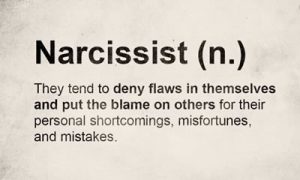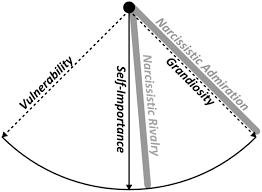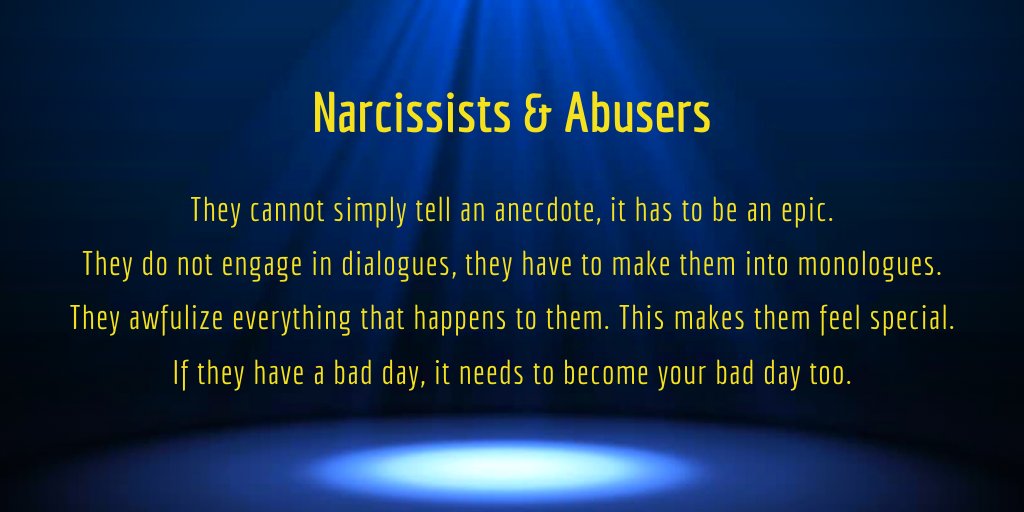The word narcissist has been tossed around a lot in the past few years. You may have heard it used to describe people who are vain or egotistical. But what does it mean? In this blog post, we will explore the meaning of narcissist (narcissism), understanding narcissism, and how to deal with them.
Contents
Understanding Narcissism/Narcissist

Narcissism is a personality disorder that is characterized by an inflated sense of self-importance, need for admiration, and lack of empathy. Narcissists often have an unrealistic view of themselves and believe they are superior to others. They can be very charming and charismatic in the beginning. But their true colors eventually show.
Narcissists are often very manipulative and can be very destructive to those around them. They may use emotional manipulation, gaslighting, and even violence to get what they want. They can also be very vengeful if they feel like they have been wronged.
Narcissism In Perspective

History And Development
In Greek mythology, Narcissus was a beautiful young man who fell in love with his reflection and drowned while trying to embrace it. The term narcissist comes from this story. However, narcissism is now considered a personality disorder that can range from mild to extreme and affects how people think, feel, behave. They also tend not to care about other people’s feelings or needs because their own needs come first in every situation.
Etymology
The term was first used in a psychological sense by Sigmund Freud when he described someone who had an inflated sense of self-importance. And needed admiration from others for their ego to stay inflated. By the 20th century, narcissism became associated with excessive vanity or conceit in one’s appearance or accomplishments.
NOTE: It’s important to remember that narcissism is not just about having a big ego. It also involves other symptoms such as lack of empathy for others, self-centeredness and selfishness, and a need for admiration. The traits of a narcissist can vary depending on the severity of the disorder.
Narcissism As a Personality Trait

Narcissism is considered a personality trait when someone displays the traits of arrogance, entitlement, need for admiration from others, and lack of empathy to some extent. But not enough that it causes significant problems in their lives. In psychology, narcissism is considered a personality trait that exists on a continuum:
High Narcissism
People who are high in narcissism often display the traits of arrogance, entitlement, and need for admiration from others. They also have a lack of empathy for those around them and little concern for other people’s feelings or needs.
Healthy Narcissism
People who are high in narcissism can still be considered healthy if they display some traits of vanity and self-confidence. But also have a strong sense of empathy for others, take other people’s feelings into account, and don’t need constant admiration from others.
Low Narcissism
People who are low in narcissism often have an accurate view of themselves. And do not need admiration from others or feel they deserve things they did not earn. They are also very considerate and empathetic towards other people’s feelings, needs, and wants.
Narcissism As a Personality Disorder
Narcissism is considered a personality disorder when someone displays the traits of arrogance, entitlement, need for admiration, and lack of empathy to such an extent that it causes significant impairment in their life. They also have a lack of concern or empathy for those around them and little consideration of how their actions may affect others.
NOTE: For example, A person who believes they are superior to others may have narcissistic personality traits. But if they do not cause problems in their life then they would not be considered to have a narcissistic personality disorder.
DSM And Its Criteria
The Diagnostic and Statistical Manual of Mental Disorders (DSM) is the standard classification of mental disorders used by mental health professionals in the United States.
The DSM-IV-TR classifies Narcissistic Personality Disorder as a Cluster B personality disorder which means it is characterized by dramatic, emotional, or erratic behavior.
According to the DSM-IV-TR, to be diagnosed with narcissistic personality disorder a person must have five or more of the following symptoms:
- Requires excessive admiration
- Is intolerant of criticism
- Shows arrogant, haughty behaviors or attitudes
- Has a grandiose sense of self-importance (e.g., exaggerates achievements and talents)
- Is preoccupied with fantasies of unlimited success, power, brilliance, beauty, or ideal love
- Believes that he or she is special and unique and can only be understood by, or should associate with, other special or high-status people (or institutions)
- Has a sense of entitlement (e.g., unreasonable expectations of especially favorable treatment or automatic compliance with his or her wishes)
Knowing Four Main Types Of Narcissists
There are four main types of narcissists: grandiose, vulnerable, malignant, and high-functioning.
Grandiose Narcissist
Grandiose narcissists have a sense of entitlement, exaggerate their accomplishments or talents, and prefer to associate with people who they think can do something for them.
Example: A grandiose narcissist might brag about their wealth or power and try to associate with other rich and powerful people.
Traits of Grandiose Narcissist
- Arrogant: They believe that they are better than everyone else.
- Controlling: They want things to go their way, and if it doesn’t, then there’s usually a tantrum.
- Manipulative: Their goal is always to get what they want without having any regard for others’ feelings or needs. Most of the time they don’t even realize they’re doing it.
Vulnerable Narcissist
Vulnerable narcissists are insecure and have low self-esteem. They often depend on others for validation. And feel like they are not good enough unless someone is paying attention to them.
Example: A vulnerable narcissist might brag about their achievements or talents in an attempt to get other people’s approval.
Traits of Vulnerable Narcissist
- Insecure: They need constant validation from others and are afraid that if they don’t get it, then something is wrong with them.
- Sensitive: Any criticism can be taken personally and hurt their feelings.
- Passive-aggressive: They may appear to be agreeable, but underneath it all, they are plotting against those who have wronged them by being mean or gossiping about that person behind their back.
Malignant Narcissist
Malignant narcissists are not only arrogant, manipulative, and controlling but also enjoy hurting others. They may use physical or emotional abuse to get what they want.
Example: A malignant narcissist might bully someone else because it makes them feel powerful or superior.
Traits of Malignant Narcissist
- Malicious: They enjoy hurting others and will do so without remorse.
- Sadistic: The pleasure they get from causing pain to someone else is enough for them not to feel guilty about it later on.
High-functioning Narcissist
High-functioning narcissists have a high degree of self-awareness and can often appear very charming and charismatic. They are usually successful professionals who have a lot to offer but use their position of power to take advantage of others.
Example: A high-functioning narcissist might be the boss that takes credit for someone else’s work or uses their position in power to get what they want from others.
Traits of High-Functioning Narcissist
- Confident: They are confident in themselves and their abilities, which makes it easier for them to charm others into doing what they want.
- Self-aware: They are aware of their strengths and weaknesses, which makes it easier for them to manipulate people.
- Manipulative: They know how to get what they want from others by playing on their insecurities or vulnerabilities.
- Charming: They can appear very likable and charismatic when trying to get something from someone else or just because it’s their natural personality trait.
Exploring Other Types of Narcissism

There are three types of narcissists: exhibitionist, closet, and destructive. They are based on the degree of obviousness of their traits in normal social settings.
Exhibitionist Narcissists
Exhibitionist narcissists are the most visible and flamboyant type of narcissist. They love to be in the spotlight and crave attention from others. They might also have a lot of friends. Because they always want to be surrounded by people. And enjoy being at parties where there are many different types of people. So that they can talk about anything with anyone who crosses their path. They thrive off attention from strangers, even if it’s only for a moment.
Example: An exhibitionist narcissist might post a lot of pictures on social media or go out clubbing every weekend so that they can be seen by everyone around them.
Closet Narcissists
Closet narcissists are the opposite of exhibitionist narcissists in that they do not like attention and prefer to stay out of the spotlight. They may also be very private people and not share many details about their personal life with others.
Closet narcissists are often resentful of exhibitionist narcissists because they feel like the attention-seekers are getting all the spotlight while they are left in the shadows.
Example: A closet narcissist might be very successful professionally but will never take credit for their work and will always downplay their achievements.
Destructive Narcissists
Destructive narcissists are the most dangerous type of narcissists because they do not care about anyone but themselves. They will use people as pawns in their game to get what they want and will even destroy lives if it means getting ahead or winning an argument with someone else.
They might also be the partner who is always accusing their partner of cheating or being unfaithful even when there’s no evidence to back up their claims.
Destructive narcissists are often very volatile and can switch from being loving one minute to being abusive the next.
Example: A destructive narcissist might be a bully at school who enjoys making other kids feel small and powerless.
Examining Narcissism
Narcissism is not just self-love. It’s an obsession with oneself that manifests as a desire to be admired and adored by others at any cost. Even if it means hurting those closest to you or yourself in the process.
In psychology, narcissism is measured on a scale from 0-100, with 100 being the most severe.
Test For Narcissist
There are a few different tests you can take to measure how narcissistic you are.
One of these tests is called the Narcissistic Personality Inventory (NPI), which was created in 1979 by Robert Raskin and Calvin Hall.
The NPI asks questions about your personality traits, such as whether you like to be the center of attention or if other people find it easy to confide in you.
Questions on this test range from:
- “Do you feel good when others praise your accomplishments?” (yes/no), to
- “Are you the kind of person who is always seeking new experiences and challenges?” (yes/no)?
The NPI is a good test for measuring narcissism, but it doesn’t provide an accurate measurement of how narcissistic someone is.
NOTE: Narcissism is a spectrum disorder which means there are many different levels of narcissism. And it can be hard to diagnose someone with this condition. Because they may not exhibit all symptoms or behaviors associated with the disorder.
Evaluating Narcissism

If you want to find out whether your partner or friend has any traits that could be considered narcissistic, then there are some other things you can look at as well:
- Making others feel small and insignificant is a way of building themselves up.
- Having no empathy toward others and being unwilling to understand or share in their feelings.
- Bragging about how great they are or what an amazing job they did on something when nobody asked for it.
- Believing that they are always right and anyone who disagrees with them is wrong, no matter what the evidence says.
- Constantly telling others how much better off their lives would be if only that person were in charge instead of whoever is running things now (e.g., “I wish I were president!”).
- Feeling entitled to special treatment because they are so important or talented; expecting everyone else around them to be just as impressed by these qualities for their sense of superiority not to be challenged.
Weapons Used by Narcissists
There are a few weapons that narcissists often use to get what they want from others:
Gaslighting
This is when the narcissist makes their victim question their sanity by constantly making them doubt their memories and perceptions.
Example: A narcissist might tell their partner that they never said they loved them, even though the partner knows they did.
They might also say that the partner is being paranoid or imagining things when they catch the narcissist cheating.
The goal of gaslighting is to make the victim feel like they are going crazy so that they will be more likely to do whatever the narcissist says.
Projection
This is when a narcissist accuses someone else of having the same flaws as them, even though it’s true about themselves.
Example: A narcissistic mother might accuse her daughter of being selfish and vain, even though she knows her daughter isn’t those things at all.
The goal of projection is to make the victim feel like they are just as bad as the narcissist.
Triangulation
This is when a narcissist creates drama by bringing in a third person into their relationship so that they can pit one person against the other.
Example: A narcissistic husband might start an affair with another woman to make his wife feel jealous and insecure.
The goal of triangulation is to sow discord and chaos in the victim’s life.
Dealing With Narcissists
If you’re dealing with a narcissist, it’s important to understand that they will never change or see things from your point of view. They are always right and everyone else is wrong in their eyes – even when there is proof otherwise! It’s also crucial for the victim to learn how to set boundaries and stick with them. There are a few things that you can do if you find yourself in a relationship with a narcissist:
Stay positive
Remember that it’s important to stay upbeat when dealing with narcissists. If you allow them to get to you, they’ll have won. Instead, try to focus on your happiness and well-being.
Limit your contact
The less contact you have with a narcissist, the better. Try to stay away from them if at all possible. As soon as you start giving them the attention they crave, they will become more demanding and manipulative.
Set your boundaries
You can do this by telling them what you will and won’t tolerate from now on, then follow through if they cross those lines again. Don’t engage in any arguments because they’ll only be feeding into the narcissist’s need for attention.
Put them in their place
If they start to cross boundaries or get too demanding, don’t be afraid to stand up to them and put them in their place. This will show them that you’re not going to be a pushover and that they won’t be able to control or manipulate you.
Expect them to lie
Even when caught red-handed! Narcissists have no problem lying about everything from small things like where they went last night (“I was at home all evening!”) or big events that affect many people’s lives (“I never cheated on you!”).
Don’t engage with their games
Narcissists enjoy getting a reaction from their victims, so don’t give them one. If you ignore them or refuse to play along with their games, they will eventually get bored and move on to someone else who is more interesting and willing to entertain their antics.
Don’t take things personally
It may be hard not to take things personally when you’re dealing with a narcissist but remember that they aren’t talking about you at all – just themselves! The only way for the victim to get out of this is by ignoring everything the narcissist says and does.
Get professional help
If things are getting too difficult to handle on your own, it may be a good idea to seek professional help. A therapist can help you understand what’s going on and give you the tools you need to deal with the narcissist in your life.
Disarming a Narcissist
There are a few phrases that you can use if you find yourself in a conversation with a narcissist:
“This isn’t about me.”
This is a great way to change the focus from yourself back onto them. It reminds them they’re the ones who started this conversation so it’s their responsibility to keep talking about themselves without any input from you whatsoever!
“That doesn’t sound like something I would say.”
This is a great way to let the narcissist know that you’re not interested in hearing their opinions or taking part in any discussion whatsoever. They may try again but if they persist, just keep repeating this phrase until they get bored and leave you alone!
“I’ll call you back later.”
This is a great way to end an interaction with narcissists without having any further contact. It’s also helpful because it gives them something else to focus on while they wait for your return phone call. So they’re not bothering anyone else in the meantime!
It may be hard at first but as long as you keep using these phrases, they’ll eventually give up trying to talk with you.
“I’m not interested in talking about myself.”
This one is great because it puts them on the defensive while also being completely true: You’re right! Why would anyone want to listen to someone prattle off endlessly about themselves when they could be talking about something else?
“I don’t have time for this.”
This is a great way to end the conversation without having to be rude. It’s also completely true – who has time for someone who just wants to talk about themselves all the time?
Expert Opinion About Narcissism
An expert’s opinion on narcissism can be very helpful in understanding the disorder and its effects.
Dr. Drew Pinsky, the host of HLN’s “Dr. Drew On Call” and author of The Mirror Effect: How Celebrity Narcissism is Seducing America, says that-
“Narcissism is a spectrum disorder.” This means that there is a range of narcissism, from people who are mildly narcissistic to those who are so severely affected that they require professional help.
Pinsky goes on to say that “narcissism is driven by insecurity and fear.” He believes that most narcissists are actually very insecure. And therefore, they use their inflated egos and grandiose behaviors to cover up this insecurity.
“They’re afraid of being rejected, unloved, or not good enough,” Pinsky says in an interview with “CBS This Morning.”
A person who exhibits narcissistic traits may feel like they are not worthy of love and admiration from others. So they seek out attention through these behaviors which helps them to feel better about themselves.
“Narcissists are often very charming, attractive, and successful at first,” Pinsky adds in the same interview with “CBS This Morning.”
Case Study
A young man named Jim was diagnosed with a narcissistic personality disorder. He had been displaying symptoms of narcissism for years. But hadn’t realized that his behavior was unusual. Until recently when he started dating someone new. After getting engaged, they got into an argument and she told him how selfish he was being which caused them to break up.
Jim realized that he needed to get help and started therapy. Through therapy, he learned about the root causes of his narcissism. As well as how to manage his behaviors more positively. He was also able to repair his relationships with family and friends who had been hurt by his behavior in the past.
The Key Message
If you think that you or someone you know may be affected by a narcissistic personality disorder, it’s important to seek professional help. There are therapies available that can help the person understand their disorder. Further, they help them learn how to manage their behaviors more positively.
Conclusion
In conclusion, narcissism is a spectrum disorder that affects people in different ways. It’s important to remember that not everyone who displays narcissistic traits is severely affected. And may only require some guidance and support. However, for those who are severely affected, professional help is necessary.
A Word From Therapy Mantra
Your mental health — Your psychological, emotional, and social well-being — has an impact on every aspect of your life. Positive mental health essentially allows you to effectively deal with life’s everyday challenges.
At TherapyMantra, we have a team of therapists who provide affordable online therapy to assist you with issues such as depression, anxiety, stress, workplace Issues, addiction, relationship, OCD, LGBTQ, and PTSD. You can book a free therapy or download our free Android or iOS app.


